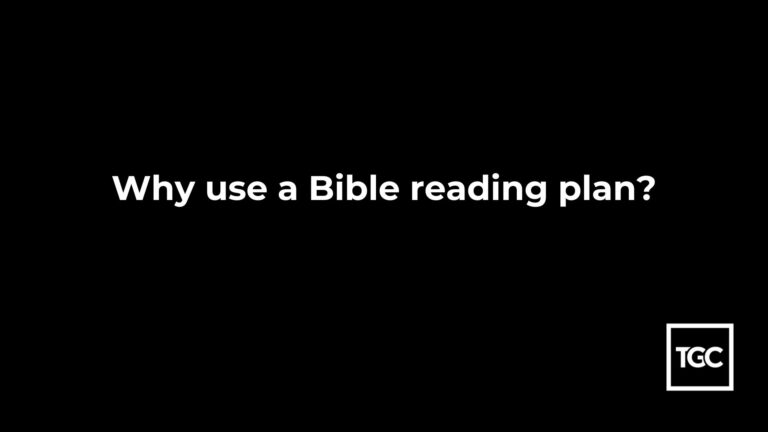I recently spent a fair bit of time speaking to an Anabaptist pastor about our various theories of the atonement. An atonement theory seeks to answer the essential question: what did the cross of Jesus Christ accomplish? What did it do? How does it change things? Historically Anabaptists have answered that question in a variety of different ways, however, as well known Anabaptist scholar Greg Boyd explains here, most modern day members of that community are gravitating towards the Christus Victor view of the atonement, which is the idea that:
“the Supreme act of love that is demonstrated on the cross broke the powers of darkness and sets human beings free; the main thing that Jesus did when he upon the cross – the Christus Victor view of the cross – it’s Latin for Christ is victorious. 1 John 3:8 says that he came to destroy the devil and his works or Hebrews 2:13 which says he came to destroy the one who has the power of death, that is the devil. So that act of love is like a bomb that exploded in the kingdom of darkness and broke the powers of darkness and set human beings free and reconciled us to God.”
It would be difficult to argue with anything that Boyd says in that paragraph – his statement is basically just a summary of the two passages that he cites:
The reason the Son of God appeared was to destroy the works of the devil. (1 John 3:8 ESV)
Since therefore the children share in flesh and blood, he himself likewise partook of the same things, that through death he might destroy the one who has the power of death, that is, the devil, and deliver all those who through fear of death were subject to lifelong slavery. (Hebrews 2:14–15 ESV)
However, as true as all of that is, it doesn’t actually address, in any satisfactory way, the essential question that every atonement theory is required to answer:
How?
How exactly does the death of Jesus Christ accomplish these glorious and life changing things?
The disconnect is even more apparent in this video posted by the Eastern Orthodox Church featuring popular spokesperson and author Frederica Mathewes-Green. Mathewes-Green is the wife of an Orthodox priest and is a qualified scholar in her own right, nevertheless, her description of the Christus Victor theory of the atonement is ultimately no more satisfying than Greg Boyd’s. Like Boyd she cites Hebrews 2:14 and says that Jesus came to earth to defeat the devil and to set his people free from death and Hades. The Exodus event in the Old Testament is also cited as further support for the model.
So far so good.
Near the end of the video however, at about the 5 minute mark, she acknowledges that in later centuries Christians began posing questions that the Orthodox version of Christus Victor wasn’t addressing in any substantial way. People wanted to know how precisely the life and death of Jesus sets us free – how does it balance our account with God? How does it break the grip of death and hell upon us? She went on to provide the following answer:
“For the early church and the Eastern Church until today there never was any question about it – we just believe that God forgives us; he forgives the sin. He doesn’t ask anybody to pay it. It is like if you owed your friend some money and he said ‘I forgive the debt’ – it doesn’t mean that you have to get a third party to pay it for you – it means that he lets it go. One of Jesus’ parables is about a man who had two debtors and one owed $5 and one owed $5,000,000 and he forgave them both and that’s the end of the parable. God just forgives us.”
God just forgives us.
No sacrifice.
No blood.
No payment made of any kind.
Well then, to ask the obvious question – why in the world did Jesus have to die on the cross?
The Christus Victor model – untethered from a more forensic and comprehensive model like PSA (Penal Substitutionary Atonement) seems incapable of providing a satisfactory answer to that question.
Boyd acknowledges this in an essay he wrote on the Christus Victor model for the Four Views series on the atonement:
“Obviously, this account leaves unanswered a number of questions we might like answered. E.g., precisely how did Calvary and the resurrection defeat the powers? In my estimation, the ancient Christus Victor models of the atonement, like some other models, became incredulous precisely because they too vigorously pressed for details. I believe we have enough revealed to understand the broad outlines of the multifaceted wisdom of God in sending Christ to die and defeat the devil. But at the end of the day we must humbly acknowledge that our understanding is severely limited.”[1]
Boyd here admits that the Christus Victor view on its own does not answer the essential question and he appears to caution believers against pressing too hard for further answers. If it were true that there were no further answers to be found within the Bible then Boyd’s counsel would be wise and prudent – but is it true?
If we were to read through the Bible sequentially, or chronologically, we might be forced initially to concede Boyd’s point. The story of King David for example would present a compelling argument. David was a rapist and a murderer and yet when he repented to Nathan the prophet – immediately he was told:
“The LORD also has put away your sin; you shall not die.” (2 Samuel 12:13 ESV)
No sacrifice.
No blood.
No payment made of any kind.
God “just forgives”.
Something similar might be argued from the prayer of Solomon at the dedication of the temple in Jerusalem. Speaking on behalf of the nation, Solomon said to the Lord:
“If they sin against you—for there is no one who does not sin—and you are angry with them and give them to an enemy, so that they are carried away captive to the land of the enemy, far off or near, 47 yet if they turn their heart in the land to which they have been carried captive, and repent and plead with you in the land of their captors, saying, ‘We have sinned and have acted perversely and wickedly,’ 48 if they repent with all their heart and with all their soul in the land of their enemies, who carried them captive, and pray to you toward their land, which you gave to their fathers, the city that you have chosen, and the house that I have built for your name, 49 then hear in heaven your dwelling place their prayer and their plea, and maintain their cause 50 and forgive your people who have sinned against you, and all their transgressions that they have committed against you, and grant them compassion in the sight of those who carried them captive, that they may have compassion on them 51 (for they are your people, and your heritage, which you brought out of Egypt, from the midst of the iron furnace).” (1 Kings 8:46–51 ESV)
Solomon asks that God would forgive his people if they repented of their sins with all their heart. If they sin and if they turn and repent and plead then please forgive them.
No mention of sacrifice.
No mention of blood.
No payment made of any kind.
Please God, just forgive.
If that was all the Bible said on this matter then we would have to agree with Boyd and Mathewes-Green. We would have to remain ambiguous on the central question of the atonement.
But thankfully, it is not.
At the Last Supper that Jesus shared with his disciples he gave them a cup of wine and said:
“Drink of it, all of you, for this is my blood of the covenant, which is poured out for many for the forgiveness of sins.” (Matthew 26:27–28 ESV)
In his Pentecost sermon Peter said:
“Repent and be baptized every one of you in the name of Jesus Christ for the forgiveness of your sins, and you will receive the gift of the Holy Spirit.” (Acts 2:38 ESV)
Paul wrote to the Ephesians saying:
“In him we have redemption through his blood, the forgiveness of our trespasses, according to the riches of his grace” (Ephesians 1:7 ESV)
Perhaps most compelling of all, the Apostle to the Hebrews said:
“without the shedding of blood there is no forgiveness of sins.” (Hebrews 9:22 ESV)
True, he said this in reference to the Old Testament sacrificial system, but then he went on to apply that general pattern to the specific ministry of Jesus Christ. He says just four verses later:
But as it is, he has appeared once for all at the end of the ages to put away sin by the sacrifice of himself. (Hebrews 9:26 ESV)
Clearly there is a logical and even legal connection between the death of Jesus on the cross and the granting of forgiveness to men and women.
God doesn’t “just forgive”.
A sacrifice is required.
Blood must be shed.
A payment must be made that corresponds to the debt we have accumulated as human beings.
According to the clear and consistent witness of the New Testament the death of Jesus Christ is that payment. The Apostle Paul wrote to the Colossians saying:
And you, who were dead in your trespasses and the uncircumcision of your flesh, God made alive together with him, having forgiven us all our trespasses, by canceling the record of debt that stood against us with its legal demands. This he set aside, nailing it to the cross. He disarmed the rulers and authorities and put them to open shame, by triumphing over them in him. (Colossians 2:13–15 ESV)
The Bible clearly says that if you are united to Christ through faith then his infinite merit is applied to your personal debt before God. God cancels the record of your debt – not just by waving it away – No! He cancels your debt by NAILING IT TO A BLOODY CROSS. If we don’t admit this – if we don’t rejoice in this – then everything we believe and love about the Christus Victor model of the atonement is just so much ephemeral blither. It was precisely by paying for our sins in his body on the cross that Jesus defeated our enemy, ended our exile and brought us home to God.
Hallelujah!
To be clear, not all Anabaptists would align with Boyd in his stated ambiguity on this particular point. In my recent conversations with pastor Bruxy Cavey for example, we briefly touched upon this very issue. Bruxy has said that God CAN “just forgive” sins – by reason of his Sovereign freedom – but he went on to immediately clarify that by saying:
“But God CHOSE to forgive through Jesus. This was his act of love, not something he HAD to do because he was subject to some universal blood sacrifice law.”[2]
I mostly agree with that statement.
I certainly agree that God chose to forgive us through the life and death of Jesus – the Apostle Paul makes that point in Ephesians 1:
Blessed be the God and Father of our Lord Jesus Christ, who has blessed us in Christ with every spiritual blessing in the heavenly places, 4 even as he chose us in him before the foundation of the world, that we should be holy and blameless before him. In love 5 he predestined us for adoption to himself as sons through Jesus Christ, according to the purpose of his will, 6 to the praise of his glorious grace, with which he has blessed us in the Beloved. 7 In him we have redemption through his blood, the forgiveness of our trespasses, according to the riches of his grace (Ephesians 1:3–7 ESV)
Before the foundation of the world God chose to redeem us through the blood of Jesus, according to the riches of his grace.
Yes!
I 100% agree that God chose to forgive our sins through Christ.
I also agree that God is not subject to “some universal blood sacrifice law”.
True.
But.
God is subject to his own Word and therefore subject to the charge of inconsistency had he simply waved away human sin without some sort of price being paid. That seems to be the point Paul is making in Romans 3:21-26.
But now the righteousness of God has been manifested apart from the law, although the Law and the Prophets bear witness to it— the righteousness of God through faith in Jesus Christ for all who believe. For there is no distinction: for all have sinned and fall short of the glory of God, and are justified by his grace as a gift, through the redemption that is in Christ Jesus, whom God put forward as a propitiation by his blood, to be received by faith. This was to show God’s righteousness, because in his divine forbearance he had passed over former sins. It was to show his righteousness at the present time, so that he might be just and the justifier of the one who has faith in Jesus. (Romans 3:21–26 ESV)
Paul imagines that a person – or perhaps an angelic creature of some kind – might find cause to question the justice of God for “just forgiving” a sinner like David. David was a terrible sinner! What business does a man like that have in the Kingdom of Heaven? How can a just God “just wave away” sin? Would even a bad judge on the earth grant pardon to a convicted murderer and rapist? Would not the citizens of that Kingdom rise up and depose that wicked judge? How then can God be considered holy?
A fair question – if any would dare to ask it!
The cross, Paul says, is the answer to that question.
The cross of Jesus Christ was the payment for David’s sin!
The cross of Jesus Christ was the payment for Moses’ sin and Abraham’s sin and Jacob’s sin and my sin. Because Jesus was obedient with respect to his human nature and infinite with respect to his Divine nature his sacrificial death had maximum worth and unlimited purchasing power – more than enough to cover the debt accumulated by every man, woman and child who ever lived – thanks be to God!
Therefore I agree with Cavey that God chose to forgive sins through the death of Jesus Christ – but I wouldn’t want to say that this was “not something he had to do” – I think it was. I think that’s what the Apostle Paul means when he says:
It was to show his righteousness at the present time, so that he might be just and the justifier of the one who has faith in Jesus. (Romans 3:26 ESV)
Paul seems to suggest that the cross was absolutely necessary – that it was the right and perfect way for God to be who he is and to save us from what we had become. Only there – in the death of his perfectly obedient Son – could God be just AND the justifier of the one who has faith in Jesus.
Because of this – because of the cross of Jesus Christ – because of the price that he willingly paid – the power of sin and death over us has been broken. The sword of sin and the sting of law have been forever taken out of the devil’s hand. We are rescued! We are ransomed! We are free!
Who shall bring any charge against God’s elect? It is God who justifies. 34 Who is to condemn? Christ Jesus is the one who died—more than that, who was raised—who is at the right hand of God, who indeed is interceding for us. (Romans 8:33–34 ESV)
All of the victory – all of the rescue – all of the blessings and benefits of the Christus Victor model have been secured for us by the sacrificial death of Christ upon the cross – thanks be to God!
I am so thankful to my Anabaptist and Eastern Orthodox friends for stirring up in me a renewed appreciation for the Christus Victor model of the atonement, but I am freshly convinced that this model cannot stand alone; it must be grounded in a proper understanding of the forensic and substitutionary nature of the cross. My interaction with these theological neighbours in concert with my further examination of the text has birthed in me a desire not to say less about the cross – but to say MORE! And BETTER – TOGETHER.
The cross is the centre of the universe. It is the stone of stumbling and the foundation of a whole new world. To see it whole – in all of it’s beauty and glory – we will have to work together. We’ll have to listen. We’ll have to hear. We’ll have to speak and we’ll have to grow. I’m thankful for the chance that I’ve had to be stretched and challenged by these recent interactions.
Oh, the depth of the riches and wisdom and knowledge of God! To him be the glory and the honour and the praise forevermore.
Amen.
SDG
Pastor Paul Carter
To listen to Pastor Paul’s Into The Word devotional podcast on the TGC Canada website see here. You can also find it on iTunes.
[1] Greg Boyd, “Christus Victor View”. The Nature Of The Atonement – Four Views (Downers Grove: IVP Academic, 2006), 37.
[2] Unused interview material, published here after confirmation and permission.
















